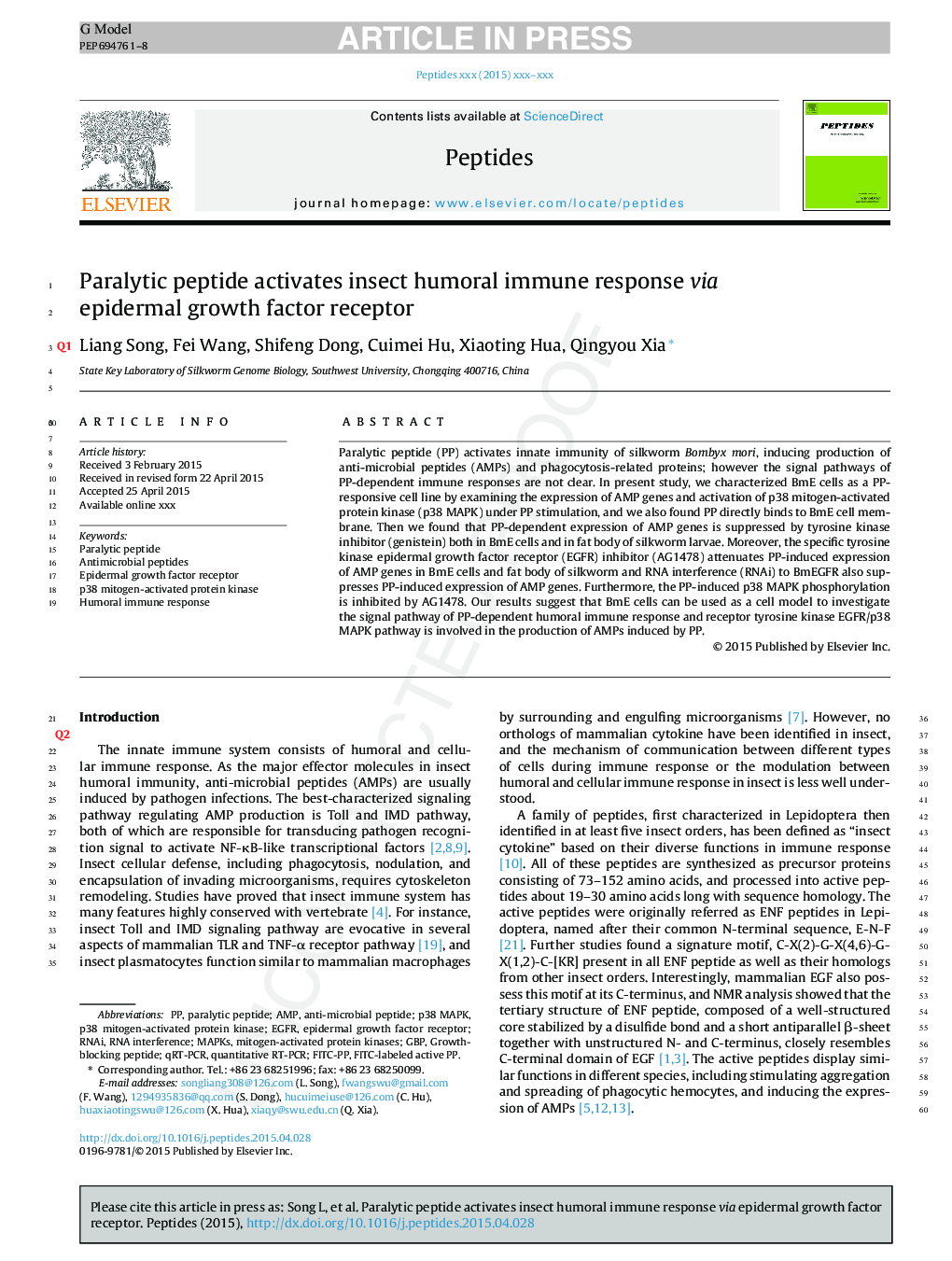| Article ID | Journal | Published Year | Pages | File Type |
|---|---|---|---|---|
| 8347899 | Peptides | 2015 | 8 Pages |
Abstract
Paralytic peptide (PP) activates innate immunity of silkworm Bombyx mori, inducing production of anti-microbial peptides (AMPs) and phagocytosis-related proteins; however the signal pathways of PP-dependent immune responses are not clear. In present study, we characterized BmE cells as a PP-responsive cell line by examining the expression of AMP genes and activation of p38 mitogen-activated protein kinase (p38 MAPK) under PP stimulation, and we also found PP directly binds to BmE cell membrane. Then we found that PP-dependent expression of AMP genes is suppressed by tyrosine kinase inhibitor (genistein) both in BmE cells and in fat body of silkworm larvae. Moreover, the specific tyrosine kinase epidermal growth factor receptor (EGFR) inhibitor (AG1478) attenuates PP-induced expression of AMP genes in BmE cells and fat body of silkworm and RNA interference (RNAi) to BmEGFR also suppresses PP-induced expression of AMP genes. Furthermore, the PP-induced p38 MAPK phosphorylation is inhibited by AG1478. Our results suggest that BmE cells can be used as a cell model to investigate the signal pathway of PP-dependent humoral immune response and receptor tyrosine kinase EGFR/p38 MAPK pathway is involved in the production of AMPs induced by PP.
Keywords
Related Topics
Life Sciences
Biochemistry, Genetics and Molecular Biology
Biochemistry
Authors
Liang Song, Fei Wang, Shifeng Dong, Cuimei Hu, Xiaoting Hua, Qingyou Xia,
